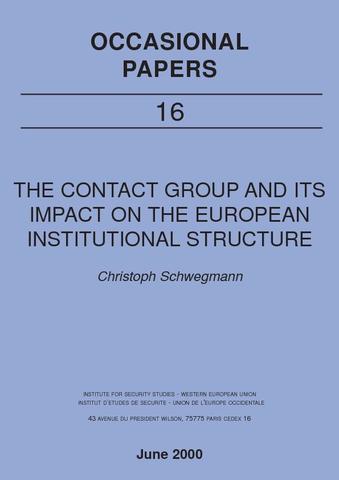You are here
The Contact Group and its impact on the European institutional structure

Among the institutions which emerged during the crisis management phase in Bosnia-Herzegovina and Kosovo, the so-called Balkan Contact Group turned out to be the innovation with the greatest impact on European institutional structures. Established in spring 1994 the Contact Group served as a coordination forum of the crisis management efforts of the United States, the Russian Federation, France, the United Kingdom, Germany and Italy (since 1996). Hence, the Contact Group became a decisive factor in uniting the international community of states. Despite many internal squabbles, the Contact Group maintained a common approach towards the belligerents and made peace negotiations possible. Having agreed on common positions, the Contact Group states, due to their prominent place in relevant international organisations, were able to act as lead nations of the international community.In this manner, the Contact Group was instrumental in negotiating the peace agreements for Bosnia and Kosovo and assuming responsibility for the peace implementation processes. Despite the Contact Group’s positive impact on the international community’s crisis management capabilities, its existence raises normative questions concerning membership, admission, control and transparency. This is especially with regard to the European Contact Group members and their obligations resulting from the Treaty of the European Union. This paper assesses the Contact Group’s role in international crisis management and it discusses the relationship between the Contact Group and international organisations, especially the European Union. It argues, however, that the Contact Group does not harm the attempts to deepen the Common European Foreign and Security Policy. Instead, it is a useful addition to the European institutional structures and a helpful instrument in healing institutional deficiencies. Contact Group-like arrangements should, therefore, always be considered as an option in European crisis management, at least as long as no alternative institutional arrangement is available.